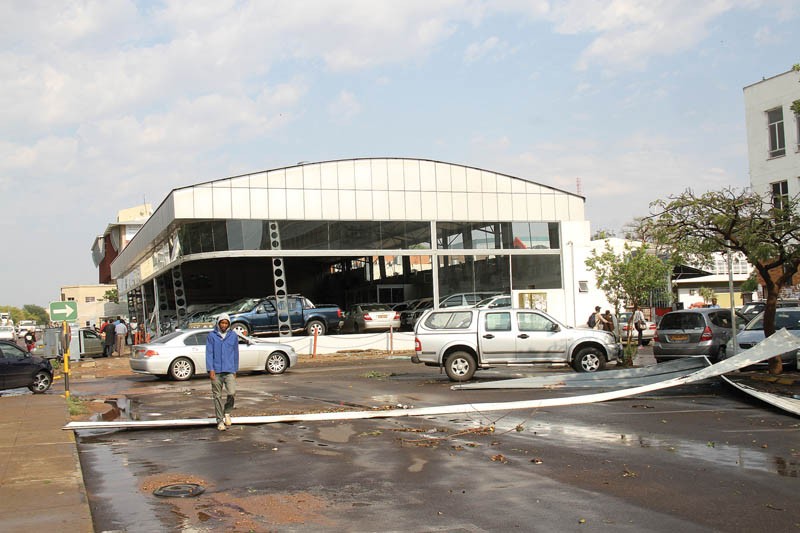Blue-sky thinking overdue for climate change solutions
Baboki Kayawe | Wednesday October 26, 2016 15:47


United Nations Secretary General’s Special Envoy for El Nino and Climate, Macharia Kamau, who left for Mozambique yesterday said at a media briefing that though Botswana has managed severe weather events “in a way that has not spilled into a humanitarian crisis”, new models were overdue to curb the phenomenon.
The Kenyan diplomat and UN representative who met with government officials, among them Minister of Foreign Affairs and International Relations Pelonomi Venson-Moitoi, SADC and partners, said although Botswana’s social safety net programmes and resilience to the drought present best practice that the world can emulate, it was critical that government introspected on the sustainability of this model.
“How do you continue in the severity of this climatic events in an environment of diminishing resources. Currently Botswana produces only 18% of the national food needs, and this is not likely to increase with (the) same business model,” Kamau cautioned.
Programmes such as those geared towards adaptive agriculture, feeding children among others are expensive to run, therefore transformative and sustainable approaches were to prevent the situation to slip into a humanitarian crisis.
He added the UN appreciated the work and dedication that Botswana has in finding solutions to this challenge. However, that may overwhelm the ability of government to respond as the country has to come up with interventions year in and year out, he said.
“We need out-of-the-box thinking, thinking around food production, water provision and livestock management. We have to realise that the future may be more dramatic and severe.
“We are putting together a blueprint for action that tries to send this message that we have to respond to disasters differently with a much more transformative, enabled, sustainable response system to secure our people’s livelihoods and build capability so that we are always running after these emergencies,” he advised.
The climate change toll, he said, would be hard-felt by vulnerable communities such as the poor and children. Moreover, this would reverse efforts to attain the 2030 Sustainable Development Goals. In the SADC region alone, 40 million people are affected by the prolonged dry spells.
“This will pose serious threats, I am particularly concerned about the children’s welfare, food security and water-borne diseases might increase,” he added.
Three months ago, SADC declared a Regional Disaster and launched an appeal amounting to $2.4 billion to support the humanitarian needs and disaster response recovery of millions of people affected by the El Niño-induced drought in the region.
Botswana declared drought in July with over a million people currently food insecure, and about $85 million needed for the response. To date government has mobilised only $16.8 million.
